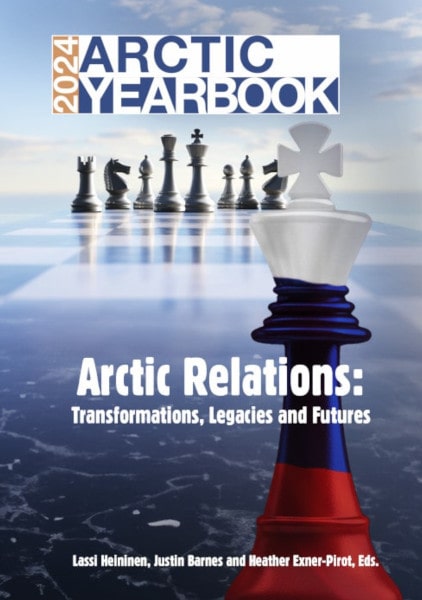For over fifteen years, the UArctic Thematic Network on Geopolitics and Security has been at the forefront of Arctic scholarship, bringing together researchers, policymakers, and students to better understand the region’s evolving political and security landscape. The Network’s newly published Success Story, “A Holistic Picture by Combining Geopolitics and Security (Studies), and Implementing a Dialogue”, written by Professor Lassi Heininen, highlights the Network’s remarkable journey and its two flagship initiatives: the Arctic Yearbook and the Calotte Academy.

At ArcticPortal.org, we take special pride in having supported this important endeavor from the very beginning. Since the Arctic Yearbook’s inception in 2012, Arctic Portal has hosted the digital platform for the publication and contributed to its visual identity, designing several of its covers and ensuring that each annual volume is accessible to readers worldwide. Our collaboration with the editorial team reflects our shared commitment to open access, knowledge exchange, and Arctic dialogue.
Building Knowledge Through Dialogue
The success of the Thematic Network lies not only in its scholarly output but also in its unique method: dialogue. From the outset, the Network has promoted an open-minded and inclusive approach, encouraging participants to engage across borders and disciplines. This approach, as Professor Heininen notes, has been key to “realizing the potential of dialogues”, generating new knowledge, promoting diversity, and safeguarding the freedom of science.
The Calotte Academy, established long before the Network, embodies this philosophy. Each year, early-career researchers, policymakers, and Indigenous representatives travel together across the North, engaging in field-based learning and discussion. The Academy’s combination of embodiment, learning through shared experience, and dialogue provides a model for how Arctic scholarship can bridge science, politics, and community voices. In this sense, it stands as one of the oldest and most enduring academic gatherings in the Arctic.
The Arctic Yearbook: A Digital Open Library
First conceived at a brainstorming meeting in Copenhagen in 2011, the Arctic Yearbook quickly became a flagship publication for the Network, and a leading peer-reviewed journal on Arctic governance, geopolitics, and international relations. Since the first edition in 2012, it has served as a vital resource for students, early-career scientists, and policy experts.
Today, in 2025, the Arctic Yearbook stands as a digital open-access library of more than a decade of Arctic scholarship, a collection that continues to grow each year. The upcoming Arctic Yearbook 2025, with the theme “War and Peace in the Arctic”, will be launched at the end of November. This new volume will feature 17 scholarly articles alongside a series of briefing notes and commentaries, offering timely insights into the shifting dynamics of Arctic security, cooperation, and regional stability. The edition continues the Yearbook’s tradition of providing a rigorous, open-access platform for critical discussion and interdisciplinary perspectives.
Behind this sustained success are several key ingredients: boldness, a willingness to innovate, and the collective expertise of authors, reviewers, and editors across the Arctic and beyond. Together, they have built a living platform that reflects the diversity, collaboration, and intellectual curiosity at the heart of UArctic’s mission.
Source: UArctic
